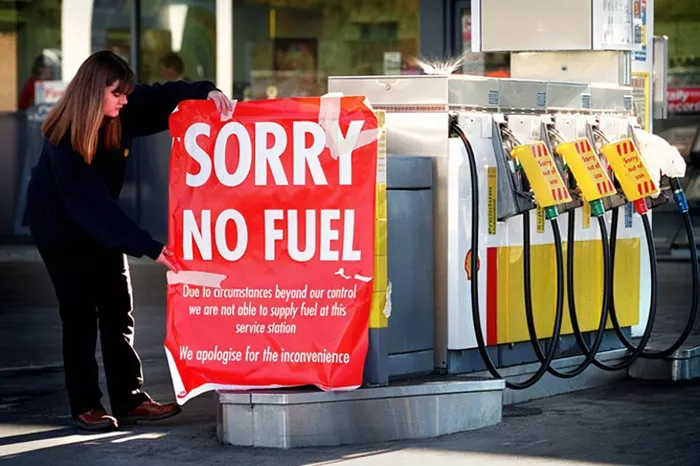The ongoing protests led by Pakistan Tehreek-e-Insaf (PTI) have paralyzed Rawalpindi and Islamabad, triggering fears of a severe fuel shortage and widespread disruptions. Government-imposed road blockades to manage the demonstrations have critically impacted supply chains, especially for petroleum products.
Fuel Supply Crisis Looms
Noman Ali Butt, a representative of the Oil Tankers Association, highlighted the growing crisis, stating that oil tanker movements have come to a halt due to blocked routes. “If the roads remain closed, petrol pumps in Rawalpindi and Islamabad could run dry by tomorrow,” Butt cautioned. The situation has already sparked public panic, with residents scrambling to secure fuel amid fears of worsening shortages.
The Oil Tankers Association has called on authorities to reopen critical routes immediately, warning that prolonged disruptions could exacerbate the fuel crisis, compounding the struggles of residents and businesses.
Schools Shut as Disruptions Mount
Amid safety concerns stemming from the protests, the government announced the closure of schools in Rawalpindi and Islamabad on Tuesday, November 26. The unrest has also disrupted essential services, creating logistical bottlenecks in transportation, healthcare, and trade sectors.
Economic and Humanitarian Alarm
Ajmal Baloch, President of the All Pakistan Traders Association, voiced grave concerns over the cascading effects of the unrest on daily life and the economy. “The nation is in chaos, and people are deeply troubled by the uncertainty,” Baloch stated.
He warned that stranded containers carrying essential goods could lead to critical shortages of food and medicine nationwide. “Patients are struggling to reach hospitals, ambulances are facing delays, and lives are being lost due to these disruptions,” he added, underscoring the humanitarian toll of the protests.
Calls for Political Dialogue
Both the All Pakistan Traders Association and the Oil Tankers Association have urged the government to engage in meaningful dialogue to resolve the crisis. Reopening blocked roads is seen as a crucial step toward restoring normalcy in supply chains and alleviating economic and humanitarian challenges.
As the protests continue to grip the twin cities, the urgency for a political resolution intensifies. Swift government action is essential to mitigate the growing hardships faced by citizens and ensure stability in the region.
Related topic:

